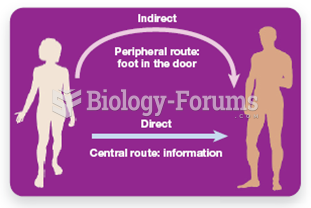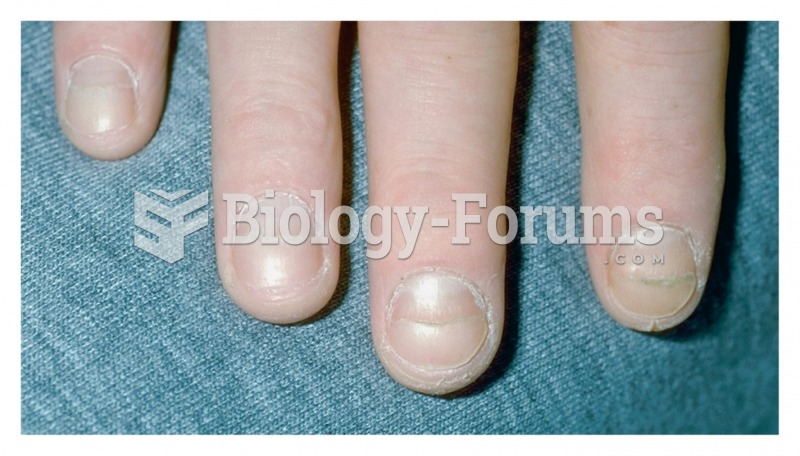|
|
|
There are 20 feet of blood vessels in each square inch of human skin.
Certain chemicals, after ingestion, can be converted by the body into cyanide. Most of these chemicals have been removed from the market, but some old nail polish remover, solvents, and plastics manufacturing solutions can contain these substances.
Though newer “smart” infusion pumps are increasingly becoming more sophisticated, they cannot prevent all programming and administration errors. Health care professionals that use smart infusion pumps must still practice the rights of medication administration and have other professionals double-check all high-risk infusions.
For pediatric patients, intravenous fluids are the most commonly cited products involved in medication errors that are reported to the USP.
It is widely believed that giving a daily oral dose of aspirin to heart attack patients improves their chances of survival because the aspirin blocks the formation of new blood clots.
 In the communication technique of collaborating, the nurse sends the message that the nurse and pati
In the communication technique of collaborating, the nurse sends the message that the nurse and pati
 the comet Encke riding along its pebbly trail of debris (long diagonal line) between the orbits of M
the comet Encke riding along its pebbly trail of debris (long diagonal line) between the orbits of M





